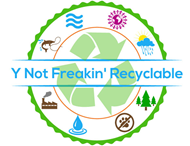[ad_1]
With heat accounting for over a third of the UK’s carbon emissions, we need to look at district heating networks to ensure our heating infrastructure can transition to zero carbon. Innovative low-temperature networks will play a key role in ensuring clean, affordable and reliable energy for consumers.
Vattenfall Heat UK and Ramboll have collaborated to highlight the significant role ambient temperature networks will play reaching zero carbon in urban areas.
Adriana Rodriguez, director of south UK, Vattenfall Heat UK and Paul Steen, head of department, Ramboll, discuss more about the plans.
The idea of a heat network in East London was first envisaged in 2007 by the London Development Agency, the then Mayor of London’s sustainable economic development delivery body. The regeneration of the London Thames Gateway offered the potential to deliver heat from a nearby power station to almost 150,000 new homes, saving 100,000 tonnes of carbon dioxide emissions each year; it was a compelling case.
The public-led project failed to materialise because of protracted procurement issues, a stalled housing market and the eventual demise of the Barking Power Station. The area has changed considerably since then and is a now a vibrant hub of regeneration set alongside new approaches to district heating based on lower temperature systems utilising otherwise wasted local energy from waste plants, sewage undertakings and cooling system.
Vattenfall Heat UK is focused on making fossil-free living possible within one generation and commissioned Ramboll to develop a study to support the vision for a district energy system in East London to transition an entire area of the city to zero-carbon.
The proposed East London Heat Network is envisaged to extend to a length of approximately 30km across four London Boroughs, with the objective of achieving low to zero carbon heat supply to existing properties and new developments.
This low-exergy approach (LoEx) envisioned by Vattenfall aims to minimise, and then eliminate, the use of fossil fuel resources through the reuse of heat that is currently being discarded. The transition to a zero-carbon system would combine waste heat sources through district heating pipework operated as an ambient temperature network with individual networks being interconnected. Reusing discarded heat in this way aligns with the principles of the circular economy.
The solution would take form in three stages starting from the Bexley energy from waste plant as the main heat supply. This would be combined with isolated ambient temperature heat networks which use excess heat from a range of sources coupled with decentralised heat pumps and thermal storage. In the second stage, ambient temperature heat networks could be interconnected directly with each other and to the Bexley heat network using an interfacing heat exchanger.
In the final stage, the energy from waste would be phased out completely and the ambient temperature network would become the primary heat supply feeding the original network using a heat pump – enabling us to achieve zero carbon heating. Thermal storage over extended periods (including inter-seasonal storage) would provide energy balancing with the electricity system. And advanced process control strategies would ensure the system meets its optimum performance objectives and reliably, anticipating the heating demands of the end consumer.
The project that was assessed in the Ramboll study would provide heating and cooling to residential, commercial, retail, industry and with a scale that would supply the equivalent of 75,000 homes.
The primary objective would be to supply greatly decarbonised heat compared with gas heating in the early years, then fall to zero-carbon as the system evolves, without compromising reliability and price competitiveness to customers.
Tapping into local resources will benefit the local economy; new businesses, jobs, and enhanced skills in construction, operations and maintenance would be created, while new revenue streams resulting from buying and selling of waste heat would be retained in the community.
In Sweden, Vattenfall is already implementing similar concepts, buying waste heat from coffee roasters and refrigeration banks, and integrating them in the wider heat network; changing the role of simple consumers to prosumers.
Ramboll also has experience with these concepts. For example, in Denmark Ramboll has integrated heat recovered from data centres into district heating networks, and designed and implemented pit thermal stores up to 200,000m³ volume to store solar generated heat in the summer to supply consumers in the winter.
This concept of recovering heat from waste resources at lower temperatures could also be replicated across other towns and cities in the UK. It requires a clear understanding of the assets available at the local level, but this is vital to keep costs down for the end consumer.
According to a report from Baringa, heat networks designed on locality in the UK, like our proposed East London Heat Network, are said to reduce costs for consumers by approximately £10bn.
The implementation of the project will need the backing of Local and Regional Authorities to create the conditions to allow such an ambitious project to succeed.
The transition to zero carbon heating in future using these methods relies on a framework for secure, affordable low-carbon heat that draws on experienced, trust-worthy suppliers working closely with local government.
National assurances or local concession zones with clearly laid out policies and obligations can help to secure investment as well as affordable and reliable heat for the end user.
Source link
Y Not Freakin’ Recyclable Home
 Pollution Climate Change Holocene Deforestation Population Acidification Y Not Freakin' Recyclable
Pollution Climate Change Holocene Deforestation Population Acidification Y Not Freakin' Recyclable



